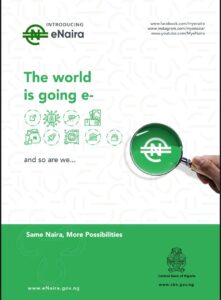The Governor, of the Central Bank of Nigeria (CBN), Mr. Olayemi Michael Cardoso has said the pressure on Nigeria’s foreign exchange is significantly due to the drop in annual forex earnings from crude oil, the dominant source of Forex supplies for Nigeria.
He said “Over the past 12 years, oil exports, constituting over 90 percent of our foreign exchange earnings, have declined from $93.89 billion in 2011 to $31.4 billion in 2020 representing over $62.9bn drop.
Mr. Cardoso who spoke on Tuesday at the Sectoral Debates by the House Of Representatives said personal travel allowances, food imports, medical treatment, and school fees abroad put significant pressure on Nigeria’s forex.
He said the CBN has introduced policies to increase supply which will help the naira to stabilize adding that before the end of 2024, the naira should stabilize against the dollar.
The CBN also projects inflation to moderate in the fourth quarter.
“Inflation pressures may persist, albeit temporarily, but are expected to moderate significantly by Q4 2024. Exchange rate pressures are also expected to reduce with the smooth functioning of the foreign exchange market” he said.
Going down historical data, Mr. Cardoso highlighted “that between 2010 and 2020, foreign education expenses amounted to a substantial $28.65 billion, as per the CBN’s publicly available Balance of Payments Statistics.” Similarly, “medical treatment abroad has incurred around $11.01 billion in costs during the same period. Consequently, over the past decade, foreign exchange demand for education and healthcare has totaled nearly $40 billion. Notably, this amount surpasses the total current foreign exchange reserves of the CBN. Mitigating a significant portion of this demand could have resulted in a considerably stronger Naira today.”
According to him, “Personal Travel Allowances accounted for a total of $58.7 billion during the same period. Notably, between January and September 2019, the CBN disbursed US$9.01 billion to Nigerians for personal foreign travel.”

Continuing on the topic of the demand for US Dollars, the Apex Bank Boss indicated that “Nigeria’s annual imports, which require dollars for payment, amounted to $16.65 billion in 1980. By 2014, the annual import expenditure had significantly surged to $67.05 billion, although it gradually decreased to $54.71 billion as of last year. Similarly, food imports escalated from $2.63 billion in 1980 to $14.84 billion in 2019.”
“In 1980, more than 75 percent of the vehicles used in Nigeria were domestically produced by companies like Volkswagen in Lagos, Peugeot in Kaduna, and others. Presently, over 99 percent of the cars driven are imported, necessitating dollar payments. Similarly, in 1980, the majority of the clothing worn was sourced from Nigerian textile mills in Funtua, Asaba, Kano, Lagos, and various other towns and cities. Today, nearly all the clothing worn is made from imported fabrics” he further stated.
He said, “Given the substantial demand for education, healthcare, professional services, personal travel, and similar needs, the exchange rate is bound to face ongoing pressure.”
He affirmed that the CBN will work “on the supply side of the exchange rate, to bolster the inflow of US Dollars into a country, the economy must “earn” these dollars through exports, whether oil or non-oil or by attracting foreign investments.”
“A robust economic foundation is essential to produce goods and services that the global market is willing to pay for in US Dollars. When such supply surpasses demand, the exchange rate appreciates, causing the price of the dollar to fall. Unfortunately, in Nigeria, the contrary has taken place’ he said.
“In 1980, our import expenditure stood at $16.65 billion, while our exports amounted to $25.97 billion, resulting in a surplus of $9.32 billion. Thus, during that year, we managed to fulfill the demand for US Dollars from our existing supply and still had over $9 billion in surplus” he told Nigerians.
“In such a situation, the exchange rate (the value of the US Dollar) would not increase because, similar to any commodity, its supply surpassed the demand. Moreover, from 2003 to 2013, we experienced a surplus of $331.73 billion in the economy, with oil exports alone contributing over $798 billion. This surplus of dollars would typically stabilize the exchange rate, leading to a “strong” Naira” he said.











